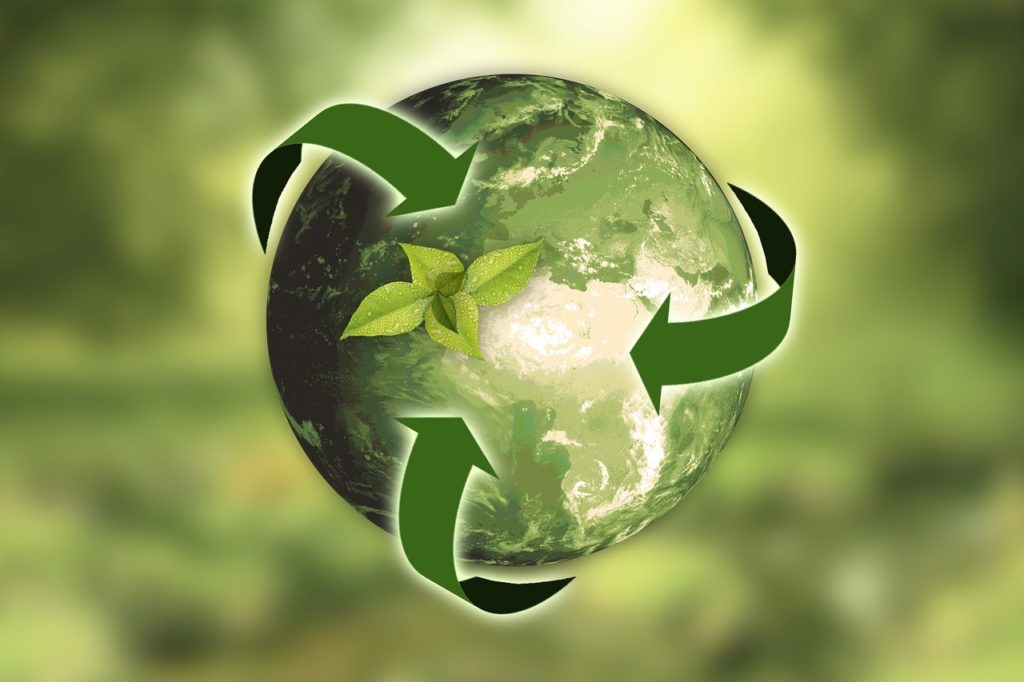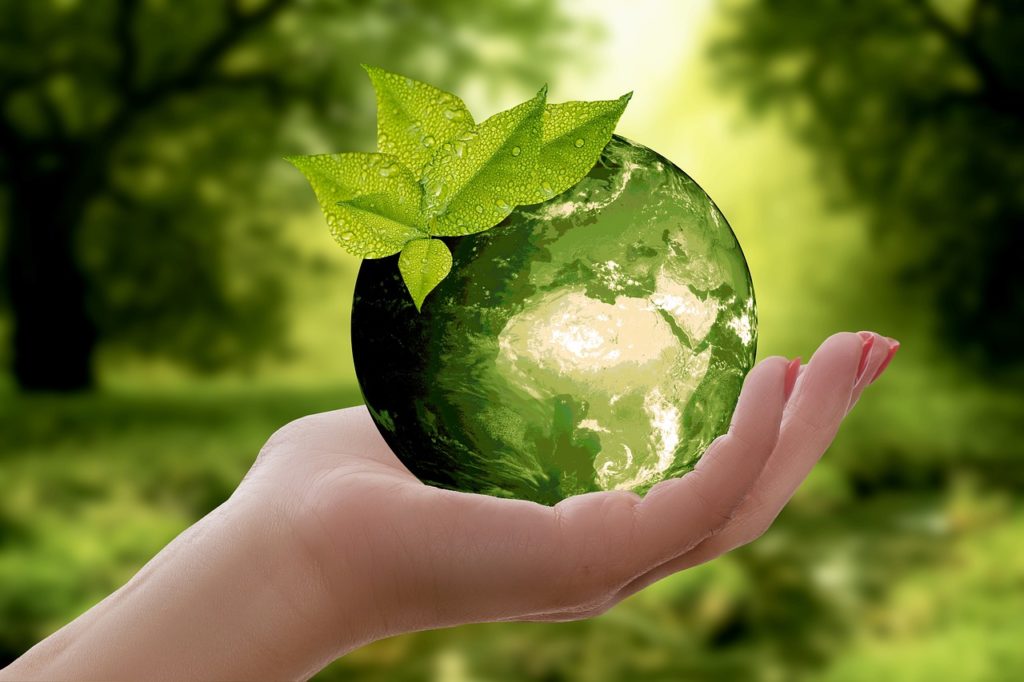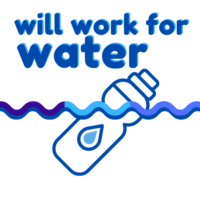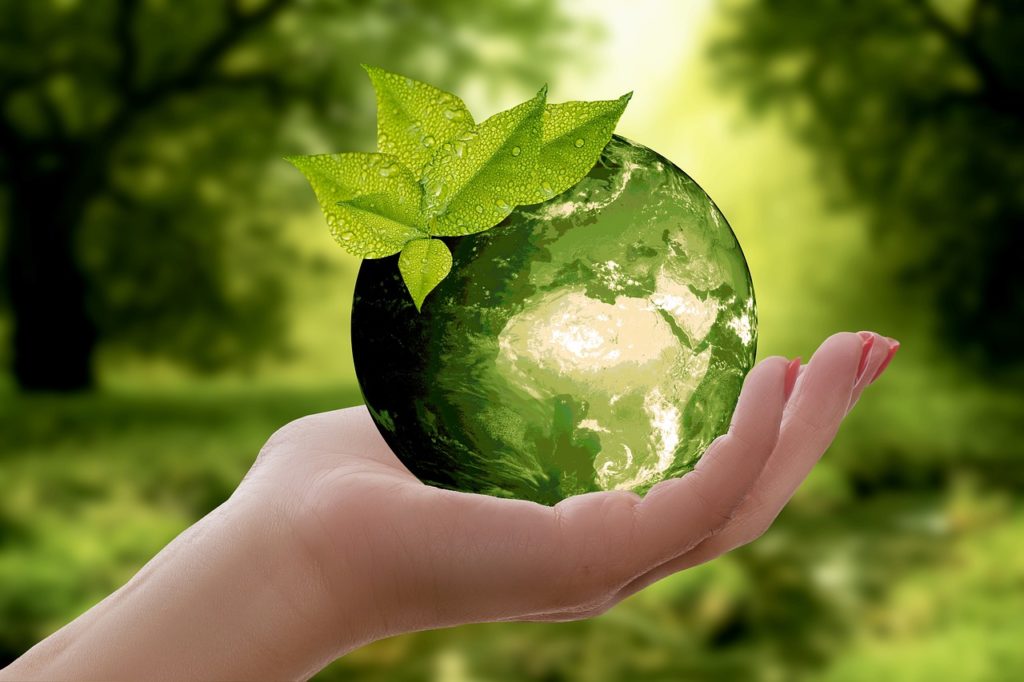Today, we’re going to explore 10 simple yet effective ways to minimize your impact on wastewater treatment plants. By following these easy tips, you can do your part in conserving water and protecting our environment. From being mindful of what you flush down the toilet to practicing water-saving habits, these small changes can make a big difference. So, without further ado, let’s dive into these practical solutions that will not only benefit our wastewater treatment plants but also contribute to a healthier and more sustainable planet.
1. Conserve Water
Water conservation is an important step in reducing your impact on wastewater treatment plants. By conserving water, you not only help to preserve this precious resource but also lessen the burden on wastewater treatment facilities. Here are some simple things you can do to conserve water in your daily life:

Fix Leaks
First and foremost, it’s crucial to address any leaks in your home. Even a small leak can waste a significant amount of water over time. Inspect your faucets, toilets, and pipes regularly for leaks, and promptly repair any issues you find. By fixing leaks, you not only save water but also reduce the strain on wastewater treatment plants.
Install Water-Saving Fixtures
Consider installing water-saving fixtures in your home. Faucet aerators, low-flow showerheads, and dual-flush toilets are excellent options that can significantly reduce water consumption. These fixtures limit the amount of water used while still maintaining functionality. By making this simple change, you can make a big difference in water conservation efforts.
Take Shorter Showers
While long, relaxing showers may be enjoyable, they consume a significant amount of water. By shortening your shower time by just a few minutes, you can conserve a considerable amount of water each day. Consider setting a timer or using a water-efficient showerhead to help you limit your shower duration without sacrificing your comfort.
Turn Off Faucets When Not in Use
A seemingly small act like turning off the faucet while brushing your teeth or washing dishes can have a significant impact on water conservation. Don’t let the water run unnecessarily, and be mindful of your water usage. By adopting this simple habit, you can conserve a substantial amount of water over time.
Collect and Reuse Rainwater
Another effective way to conserve water is by collecting and reusing rainwater. Install a rain barrel or cistern in your yard to capture rainfall. This collected water can be used for watering plants, washing outdoor surfaces, or even flushing toilets. By utilizing rainwater instead of tap water for these purposes, you reduce your reliance on treated water and alleviate the strain on wastewater treatment plants.
2. Use Environmentally-Friendly Products
Using environmentally-friendly products is not only beneficial for your health but also helps to reduce the impact on wastewater treatment plants. By opting for eco-friendly alternatives, you minimize the introduction of harmful substances into the water system. Here are some ways to make more sustainable choices:
Avoid Harsh Chemicals
Many household cleaning products contain harsh chemicals that can be harmful to both your health and the environment. Look for alternatives that are labeled as non-toxic or specify their eco-friendliness. By avoiding harsh chemicals, you ensure that less chemical residue enters the wastewater system, reducing the burden on treatment plants.
Choose Biodegradable and Eco-Friendly Products
When shopping for various products, from soaps and detergents to personal care items, choose those that are biodegradable and eco-friendly. These products are designed to break down more easily in the environment, minimizing their negative impact on wastewater treatment plants. Look for certifications such as “USDA Certified Organic” or “EcoLogo” to ensure you are making responsible choices.
Use Natural Alternatives for Cleaning
In addition to choosing eco-friendly products, consider using natural alternatives for cleaning. Items such as vinegar, baking soda, and lemon juice can be effective substitutes for commercial cleaning agents. These natural ingredients are safe, non-toxic, and biodegradable, making them an excellent choice for reducing your impact on wastewater treatment plants.
Dispose of Household Hazardous Waste Properly
It’s essential to dispose of household hazardous waste, such as batteries, paints, and solvents, correctly. These items can be harmful to the environment if not disposed of properly and can pose challenges for wastewater treatment plants. Check with your local waste management authority for information on proper disposal methods and drop-off locations in your area.
3. Limit the Use of Disposable Items
Disposable items create a significant amount of waste that ends up in landfills and, in some cases, can even end up in wastewater treatment plants. By reducing your reliance on disposable items, you contribute to waste reduction and lessen the burden on wastewater treatment facilities. Here are some ways to limit the use of disposable items:
Use Reusable Shopping Bags
Instead of relying on single-use plastic bags, bring reusable shopping bags with you whenever you go grocery shopping or run errands. These bags are durable, environmentally-friendly, and significantly reduce the amount of plastic waste that ends up in landfills and potentially in wastewater treatment systems.

Bring Your Own Water Bottle and Coffee Cup
Carrying a reusable water bottle and coffee cup is another effective way to reduce waste. Instead of purchasing drinks in disposable containers, bring your own and opt for refills instead. This simple change not only reduces waste but also lowers the demand for single-use containers, ultimately easing the burden on wastewater treatment plants.
Avoid Single-Use Plastic Cutlery and Plates
When dining out or ordering takeout, try to avoid using single-use plastic cutlery and plates. Instead, opt for reusable utensils and plates. If you’re on the go and reusable options are not available, consider carrying your own set of compact, reusable utensils. By doing so, you reduce the amount of plastic waste generated and minimize the strain on wastewater treatment plants.
Opt for Cloth Napkins Instead of Paper
Using cloth napkins instead of paper napkins is a simple change that has a positive impact on waste reduction. Cloth napkins can be reused numerous times and are a more sustainable choice compared to their paper counterparts. By adopting this practice, you can help reduce the amount of waste that ends up in landfills and, in turn, the wastewater treatment system.
4. Properly Dispose of Medicines
Disposing of medicines properly is crucial to prevent these substances from entering the water system. Improper disposal can lead to water contamination and pose risks to both human and aquatic life. Follow these guidelines to ensure the proper disposal of medicines:
Don’t Flush Medications
Flushing medications down the toilet or sink is not an appropriate disposal method. The drugs can find their way into water bodies, potentially harming the environment and contributing to the challenges faced by wastewater treatment plants. Instead, explore safe disposal options.
Take Advantage of Drug Take-Back Programs
Many communities offer drug take-back programs, providing a safe and convenient way to dispose of unused or expired medications. These programs often have drop-off locations where you can bring your medications for proper disposal. Take advantage of these initiatives to ensure that medications are disposed of in an environmentally responsible manner.
Follow Disposal Instructions on the Label
If a drug take-back program is not available in your area, carefully read and follow the disposal instructions provided on the medication label. Some medications may recommend mixing the drugs with substances like coffee grounds or cat litter before sealing them in a bag and disposing of them in the regular trash. By following these instructions, you can help prevent the drugs from entering the water system.
5. Manage Household Waste Wisely
Proper management of household waste is essential for reducing your impact on wastewater treatment plants. By implementing waste reduction strategies, such as recycling, composting, and donation, you can minimize the amount of waste sent to landfills and ultimately alleviate the strain on wastewater treatment facilities. Here’s how you can manage household waste wisely:
Recycle Properly
Make sure you understand and follow the recycling guidelines set by your local waste management system. Separate recyclable materials from general household waste and place them in the designated recycling bins. This simple act of recycling reduces the amount of waste that ends up in landfills and limits the burden on wastewater treatment plants.
Compost Organic Waste
Composting is an effective way to manage organic waste, such as fruit and vegetable scraps, coffee grounds, and yard waste. By composting, you divert these materials from landfills and create nutrient-rich soil that can be used to enrich your garden or potted plants. As a result, less organic waste reaches wastewater treatment plants, reducing the strain on their operations.
Reduce Packaging Waste
Minimizing packaging waste is an essential step in waste reduction. When shopping, consider choosing products with minimal packaging or ones that are packaged in materials that are easily recyclable. Additionally, buy in bulk whenever possible and opt for products with refillable options. These simple choices can significantly reduce the amount of packaging waste generated and lessen the impact on wastewater treatment plants.
Donate or Reuse Items
Sometimes, items that are no longer useful to you can still be valuable to others. Instead of throwing away perfectly functional items, consider donating them to local charities, thrift stores, or community organizations. Additionally, explore creative ways to reuse items within your household. By donating or reusing items, you reduce waste and contribute to the overall reduction in the burden on wastewater treatment plants.
6. Avoid Pouring Harmful Substances Down the Drain
Pouring harmful substances down the drain can have severe consequences for wastewater treatment plants. These substances can interfere with the treatment processes or even render them ineffective. To minimize the impact on wastewater treatment facilities, follow these practices:

Dispose of Cooking Oil and Grease Properly
Pouring cooking oil and grease down the drain is a common but harmful practice. These substances can solidify in the pipes, causing blockages and potentially damaging the wastewater treatment infrastructure. Instead, allow the oil or grease to cool and solidify, and then dispose of it in the regular trash or recycle it if possible.
Limit the Use of Harsh Cleaning Chemicals
Harsh cleaning chemicals, such as bleach, ammonia, and drain cleaners, should be used sparingly and only when necessary. These substances can be detrimental to the water system when flushed down the drain. Whenever possible, opt for eco-friendly cleaning alternatives or natural cleaning ingredients mentioned earlier. By limiting the use of harsh chemicals, you minimize their impact on wastewater treatment plants.
Avoid Flushing Non-Biodegradable Items
Toilet flushing should be limited to human waste and toilet paper. Please refrain from flushing non-biodegradable items, such as wipes, feminine hygiene products, or cotton balls, down the toilet. These items can clog pipes and potentially disrupt the wastewater treatment process. Dispose of them in the regular trash instead.
7. Be Mindful of What Goes into the Garbage Disposal
While garbage disposals are convenient for disposing of food scraps, it’s important to be mindful of what goes into them to avoid unnecessary strain on wastewater treatment plants. Follow these guidelines to ensure responsible use of your garbage disposal:
Only Dispose of Food Scraps
Garbage disposals are designed to handle small food scraps that are generated during meal preparation. Avoid disposing of fibrous items like celery or tough items like bones that can damage the disposal unit. By using your garbage disposal appropriately, you reduce the quantity of food waste that reaches wastewater treatment plants.
Avoid Putting Coffee Grounds and Grease Down the Drain
Coffee grounds and grease can cause problems when poured down the drain or garbage disposal. Coffee grounds tend to clump and can accumulate, leading to blockages in the pipes. Grease, as mentioned earlier, can solidify and cause pipe blockages as well. Instead, dispose of coffee grounds in your compost bin and grease in the regular trash.
8. Maintain Your Septic System
If you have a septic system, proper maintenance is essential for reducing your impact on wastewater treatment. By ensuring the proper functioning of your septic system, you minimize the amount of waste that enters the wastewater treatment system. Here are some maintenance tips to follow:
Regularly Pump Your Septic Tank
It’s crucial to have your septic tank regularly pumped by a licensed professional. The frequency of pumping depends on various factors, such as the tank size and the number of occupants in your household. Regular pumping prevents solids from accumulating in the tank, reducing the risk of overflow and the introduction of harmful substances into the wastewater system.
Avoid Using Excessive Amounts of Water
Using excessive amounts of water can overload the septic system, potentially leading to issues with its functioning. Be mindful of your water usage and avoid activities that involve excessive water consumption, such as prolonged showers or running multiple appliances simultaneously. By conserving water, you also aid in the proper functioning of your septic system.
Prevent the Entry of Harmful Chemicals
Avoid introducing harmful chemicals, such as paint thinners, pesticides, or excessive amounts of harsh cleaning agents, into the septic system. These substances can disrupt the delicate balance of the system and harm the beneficial bacteria responsible for treating the wastewater. Follow the same guidelines for environmentally-friendly products mentioned earlier to ensure the proper functioning of your septic system.
9. Support Water Conservation Initiatives
Supporting water conservation initiatives is a proactive way to reduce your impact on wastewater treatment plants and contribute to the preservation of this vital resource. By staying informed, advocating for water conservation policies, participating in programs, and encouraging others to do the same, you can make a significant difference. Here’s how you can actively support water conservation initiatives:
Stay Informed and Educated
Stay up to date with the latest information on water conservation practices, technologies, and initiatives. Research reputable sources, read educational materials, and follow organizations dedicated to promoting water conservation. By being well-informed, you can make informed decisions and encourage others to do the same.
Advocate for Water Conservation Policies
Get involved in your community and advocate for water conservation policies at the local, regional, and national levels. Support politicians and organizations that prioritize water conservation and promote sustainable water management practices. Write letters, attend public meetings, and engage in conversations to raise awareness and highlight the importance of water conservation.
Participate in Water Conservation Programs
Participate in water conservation programs offered by your municipality or organizations. These initiatives may include water-saving challenges, educational workshops, or rebate programs for water-efficient fixtures. By actively engaging in these programs, you not only reduce your own water consumption but also contribute to collective efforts in conserving this valuable resource.
Encourage Others to Conserve Water
Spread the word about the importance of water conservation and encourage others to join in the efforts. Share information on social media, discuss water-saving strategies with friends and family, and lead by example through your own sustainable practices. By inspiring others to conserve water, you create a ripple effect that can collectively reduce the strain on wastewater treatment plants.
10. Stay Informed and Spread Awareness
Staying informed and spreading awareness about wastewater treatment plants and related issues is crucial for fostering environmental stewardship. By learning about wastewater treatment processes, local water policies, and regulations, and sharing this knowledge with others, you can actively contribute to a sustainable future. Here’s how you can stay informed and spread awareness:
Stay Updated on Wastewater Treatment Plant News
Follow news and developments related to wastewater treatment plants. Stay informed about advances in treatment technologies, infrastructure improvements, and challenges faced by these facilities. By being aware of the issues, you can better understand the importance of reducing your impact on wastewater treatment plants and share this knowledge effectively.
Learn about Local Water Policies and Regulations
Educate yourself about the water policies and regulations in your local area. Understand the guidelines set by the authorities regarding water usage, waste disposal, and environmental protection. This knowledge will empower you to make responsible choices and advocate for sustainable practices.
Share Information with Friends and Family
Share what you’ve learned about wastewater treatment plants and water conservation with your friends, family, and colleagues. Engage in conversations, highlight the importance of water conservation, and discuss practical tips and strategies. By spreading awareness, you can inspire others to take action and collectively reduce the impact on wastewater treatment plants.
In conclusion, reducing your impact on wastewater treatment plants requires a combination of conscious choices and sustainable practices. By conserving water, using environmentally-friendly products, limiting the use of disposable items, properly disposing of medicines, managing household waste wisely, avoiding pouring harmful substances down the drain, and maintaining your septic system, you play a vital role in preserving water resources and minimizing the strain on wastewater treatment facilities. Additionally, supporting water conservation initiatives, staying informed, and spreading awareness create a collective effort to build a more sustainable future. By implementing these easy and practical ways, you can make a positive difference and contribute to the overall health of our environment and communities.


